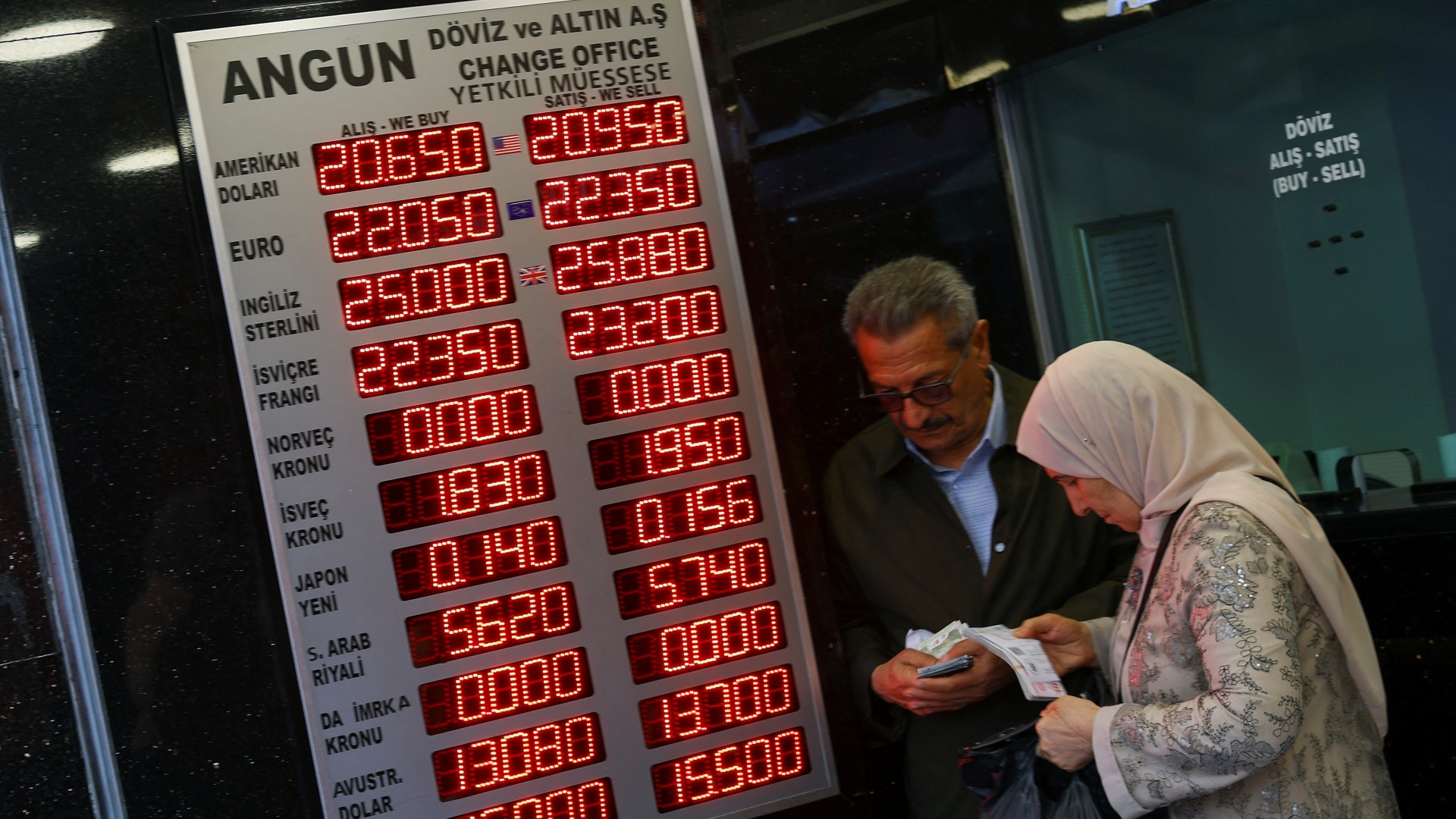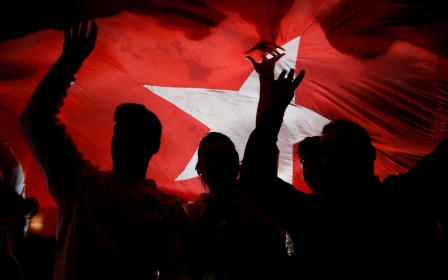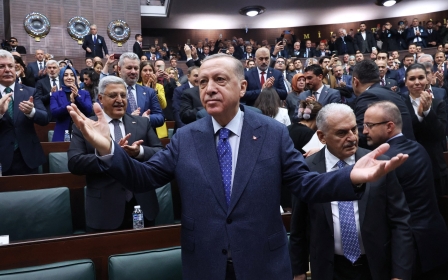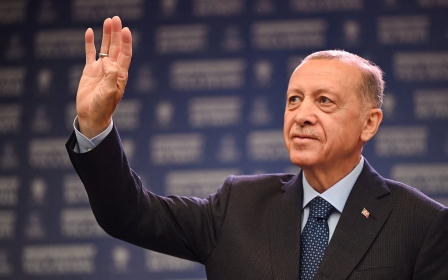Turkey elections: Five urgent challenges Erdogan will face in his third term
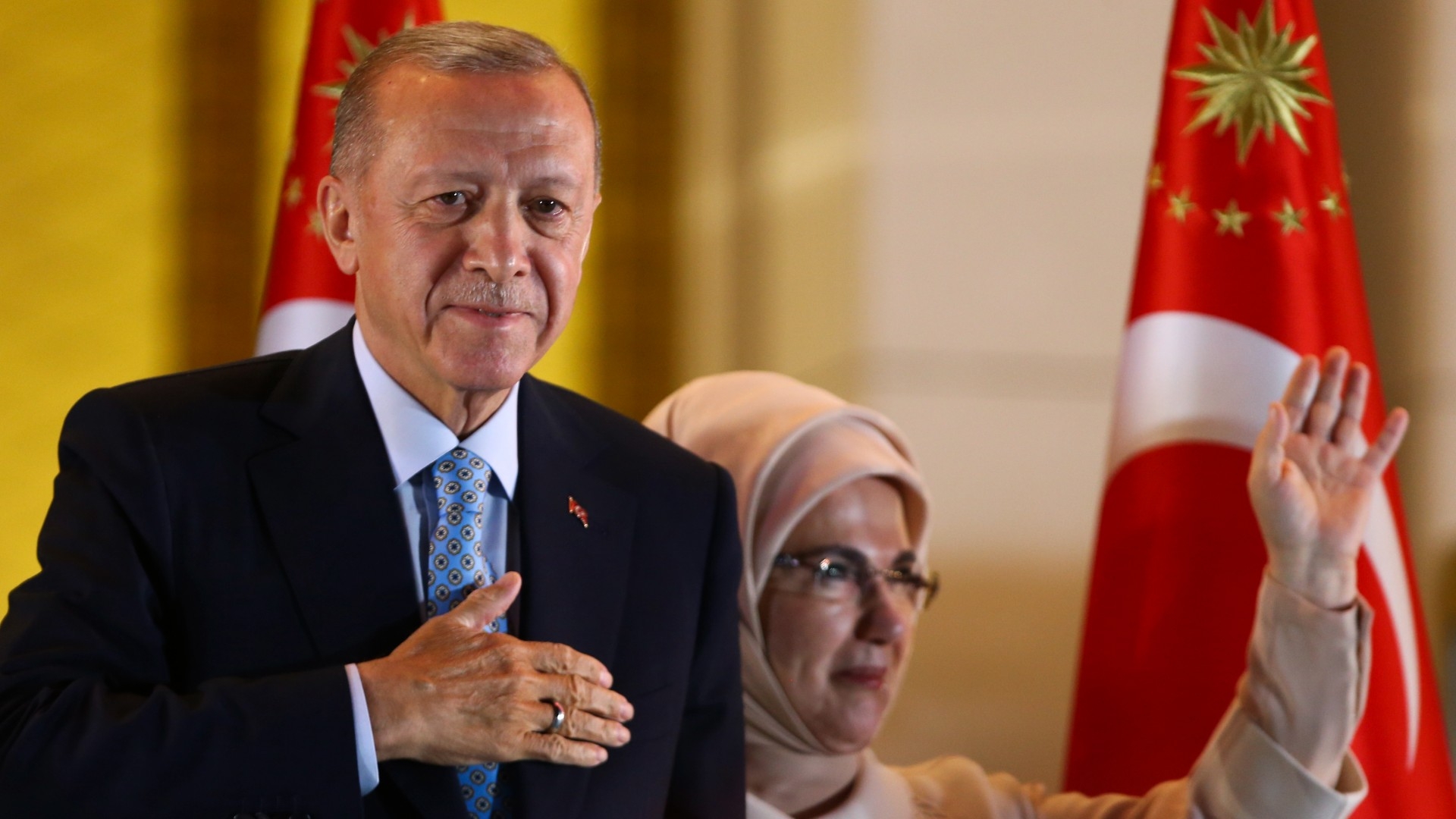
Recep Tayyip Erdogan was re-elected for a third presidential term on Sunday, prompting his supporters to take to the streets in jubilation.
With his win secure, Erdogan addressed some of the things he plans to do in the near future. Yet, amid the celebrations, he nonetheless faces significant challenges, including: addressing the economic crisis, finding solutions for the refugee crisis, and securing victory in the upcoming municipal elections in 10 months' time.
That's just on the domestic front. As for foreign policy, Turkey's western allies are urging Erdogan to ratify Sweden's Nato membership before a summit in Vilnius on 11 July, an issue linked to Turkey's need for F-16 warplanes.
Middle East Eye takes a look at five of Erdogan's most pressing challenges:
Tough economic choices
Last week, Turkey's Central Bank reported negative net foreign exchange reserves for the first time since 2002, with a balance of $151.3m in the red as of 19 May. Erdogan has managed to finance his unorthodox monetary policy of maintaining low interest rates by obtaining currency swaps and injections of billions of dollars from Gulf allies and Russia. However, these resources have been depleted.
Erdogan's economic team has been utilizing backdoor methods, primarily through public banks, to stabilise the Turkish lira against the US dollar. Despite rampant inflation, the lira has maintained a steady exchange rate against the dollar, making it increasingly challenging for Turkish exporters to compete with their international rivals.
Some exporters are calling for a 25 percent drop in the value of the lira against the dollar to enhance their competitiveness, because Turkish products are now overvalued and comparatively more expensive than those from elsewhere. As a result of this dynamic, Turkey's trade deficit widened by 44 percent in April, reaching $8.85bn compared with $6.15bn the previous year.
Despite Erdogan's hopes, exports fell by 17 percent to $19.3bn in April.
There is a sense of panic in the country, as many urban dwellers are withdrawing their foreign currency from banks and storing it in safes. The banks, meanwhile, are struggling to meet the demand.
Morgan Stanley predicts a 29 percent decline in the lira in the coming months if the president does not change course. It is unclear which path Erdogan will choose. In a recent statement, he said his intention is to solidly manage the economy based on trust and stability. Erdogan said he is aiming to design an internationally reputable financial management, investment and employment-oriented manufacturing economy.
Municipal elections
Another significant electoral test for Erdogan will be the mayoral elections scheduled for March 2024. Erdogan considers these crucial and views them as a vote of confidence. He has called on his supporters to work towards recapturing major cities like Istanbul, Ankara and Antalya, which were lost to the opposition in the 2019 municipal elections.
However, while it will be an uphill battle, Erdogan may have some advantages if the opposition fails to maintain its unity and support from Kurdish voters in urban centres.
Additionally, a court judgment hanging over Istanbul Mayor Ekrem Imamoglu, who is a leading figure in the opposition CHP, could result in his banishment from politics for a few years, a decision that Erdogan might support.
Erdogan won the 2018 presidential elections with 52 percent of the votes but lost control of major cities to the opposition within 10 months. In Turkish politics, anything is possible.
Refugee crisis
The presence of 3.7 million Syrian refugees in Turkey has become a major issue, particularly emphasized by the opposition. Hostility towards Syrians has been increasing since 2020, when Turkey's economic difficulties began to be felt by the public, who turned on the refugees who have sheltered in the country over the past decade.
Erdogan has stated multiple times in the past two weeks that he does not plan to deport Syrians en masse to Syria, considering this "inhumane" and "un-Islamic". However, anti-refugee politics have gained considerable support, forcing Erdogan to ally himself with ultranationalist Sinan Ogan, who advocated for the expulsion of Syrians during the elections.
In his speech on Sunday night, Erdogan reiterated his commitment to a policy based on voluntary return. He also mentioned that 600,000 Syrians have already gone back to areas of northern Syria under opposition control. The president added that, through cooperation with Qatar and a new resettlement project, Turkey aims to facilitate the return of one million more Syrians in the coming years.
However, if the economic situation continues to worsen, tensions may rise further, with parts of Turkish society believing Syrians steal jobs and contribute to cultural problems, fostering racism and xenophobia.
Sweden's Nato membership
During an interview this month, Erdogan expressed his reluctance to ratify Sweden's membership of Nato, complaining the Scandinavian country wasn’t doing enough to combat terrorism, by which he meant its harbouring of wanted Kurdish figures.
Erdogan often adopts a tough stance when there is an opportunity to strike a deal.
Seeking Sweden's accession to the alliance, the US Congress proposed Swedish membership as a condition for the sale of F-16 fighter jets to Turkey.
The Erdogan administration was not fond of this proposal, with officials unsure whether senators such as Democrat Bob Menendez would keep their word, or if other congressmen would support the condition.
This situation poses a slippery slope, because Congress won't necessarily vote for something promised to Erdogan.
However, Turkish officials have said they still support Sweden's membership but would like to see Stockholm take measures against the presence of suspected members of the PKK armed group.
Syria reconciliation
Erdogan has made efforts to repair relations with Syria's President Bashar al-Assad, with assistance from Russia. Ankara believes that establishing ties with Damascus is crucial, given Turkey's military presence in northern Syria and Assad's need for international recognition and a trade route.
Erdogan seeks to persuade Assad to take action against Syrian Kurdish armed organisations that Ankara considers terrorist groups. Ultimately, he aims to reach a deal with Assad that would facilitate the return of refugees and lead to a constitutional change, allowing the incorporation of the Syrian opposition into the state.
Reconciliation is seen as crucial for Turkish domestic politics, as this would help to alleviate anti-Syrian sentiment in society and create circumstances useful for better cohabitation.
This article is available in French on Middle East Eye French edition.
Middle East Eye propose une couverture et une analyse indépendantes et incomparables du Moyen-Orient, de l’Afrique du Nord et d’autres régions du monde. Pour en savoir plus sur la reprise de ce contenu et les frais qui s’appliquent, veuillez remplir ce formulaire [en anglais]. Pour en savoir plus sur MEE, cliquez ici [en anglais].


